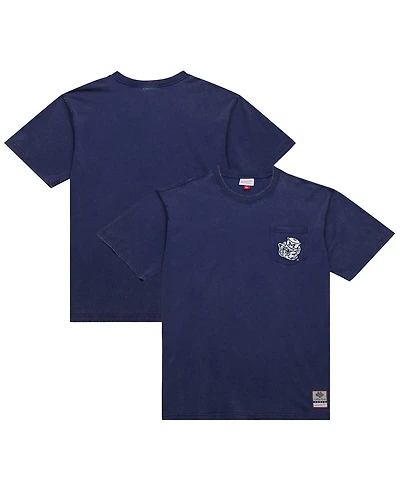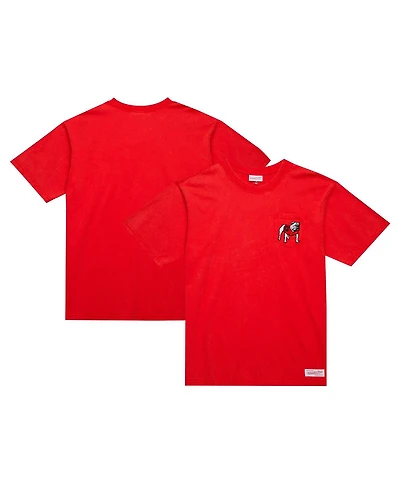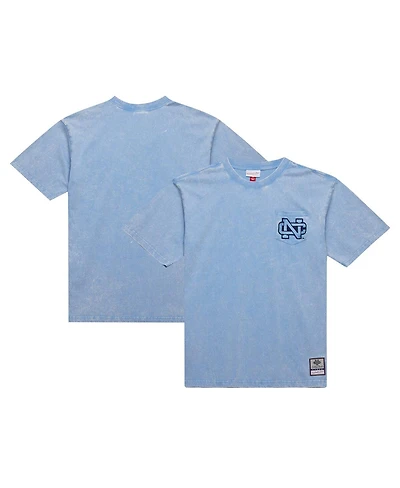Home
Fade Away Diamond Time
Barnes and Noble
Loading Inventory...
Fade Away Diamond Time in Bloomington, MN
Current price: $15.99


Fade Away Diamond Time in Bloomington, MN
Current price: $15.99
Loading Inventory...
Size: CD
The story of
Fade Away Diamond Time
is as rocky as one of the roads in
Casal
's rural
country-rock
songs. After a number of years as a struggling musician, including a stint as guitarist in the
Southern rock
band
Blackfoot
, he was signed in 1991 to a publishing contract with
Warner/Chappell Music
. He had enough songs at the time for an album, but it was felt they were not ready for release yet. In 1994,
Bud Scoppa
, who had been an ardent supporter of
's music, heard a tape of demos recorded that same year (of which one,
"Don't Turn Your Back on Me,"
can be found on the 1997 outtakes release
Field Recordings
) and felt the time was right for
to be signed to the label he had just joined,
Zoo Records
. Yet, only five weeks after the signing,
Scoppa
was ousted from
Zoo
due to corporate downsizing. The label, surprisingly, let plans for the album continue, but basically ignored it. With a lesser experienced or talented artist, this might have resulted in a shoddy album, but it worked to
's advantage, as he was free to do whatever he wanted. Recording was done with producer
Jim Scott
and a fine array of musicians, including veteran session musician
Bob Glaub
on bass, in
Palacio del Rio
, a Spanish mansion near Santa Barbara that used to be
Dean Martin
's house. The idyllic setting proved perfectly suited for the music that resulted. Relaxed, timeless-sounding songs mixing elements of
rock
,
country
, and
folk
comprise the album.
's songs strongly evoke
Jackson Browne
and
the Eagles
'
Southern California country-rock
, along with the harder edge of
Neil Young
Young
's
side. This is predominantly a band recording and the interplay of the musicians is very tight. It sounds like they're all playing together in a living room because, well, they are. Lyrically, the songs focus on interpersonal relationships and well-crafted character studies. The warm, bright
"These Days With You"
echoes
"Long May You Run,"
while
"Detroit or Buffalo"
is an impassioned, take-no-prisoners song of restlessness and wanderlust. Despite his often-present influences,
is an adept songwriter in his own right, covering varied ground from the majestic
of
"Day in the Sun"
to the introspective
"Bird in Hand"
and the album-closing slow
waltz
"Sunday River."
The album was released to critical acclaim, but conversely, almost no support from the record label. Within a few months
was notified by phone in the Nashville bar where he was performing that he had been dropped from
and that the tour was abruptly over. Within two months after that,
itself was out of business. Though temporarily set back,
released
Rain, Wind and Speed
not long after in 1996. ~ Rob Caldwell
Fade Away Diamond Time
is as rocky as one of the roads in
Casal
's rural
country-rock
songs. After a number of years as a struggling musician, including a stint as guitarist in the
Southern rock
band
Blackfoot
, he was signed in 1991 to a publishing contract with
Warner/Chappell Music
. He had enough songs at the time for an album, but it was felt they were not ready for release yet. In 1994,
Bud Scoppa
, who had been an ardent supporter of
's music, heard a tape of demos recorded that same year (of which one,
"Don't Turn Your Back on Me,"
can be found on the 1997 outtakes release
Field Recordings
) and felt the time was right for
to be signed to the label he had just joined,
Zoo Records
. Yet, only five weeks after the signing,
Scoppa
was ousted from
Zoo
due to corporate downsizing. The label, surprisingly, let plans for the album continue, but basically ignored it. With a lesser experienced or talented artist, this might have resulted in a shoddy album, but it worked to
's advantage, as he was free to do whatever he wanted. Recording was done with producer
Jim Scott
and a fine array of musicians, including veteran session musician
Bob Glaub
on bass, in
Palacio del Rio
, a Spanish mansion near Santa Barbara that used to be
Dean Martin
's house. The idyllic setting proved perfectly suited for the music that resulted. Relaxed, timeless-sounding songs mixing elements of
rock
,
country
, and
folk
comprise the album.
's songs strongly evoke
Jackson Browne
and
the Eagles
'
Southern California country-rock
, along with the harder edge of
Neil Young
Young
's
side. This is predominantly a band recording and the interplay of the musicians is very tight. It sounds like they're all playing together in a living room because, well, they are. Lyrically, the songs focus on interpersonal relationships and well-crafted character studies. The warm, bright
"These Days With You"
echoes
"Long May You Run,"
while
"Detroit or Buffalo"
is an impassioned, take-no-prisoners song of restlessness and wanderlust. Despite his often-present influences,
is an adept songwriter in his own right, covering varied ground from the majestic
of
"Day in the Sun"
to the introspective
"Bird in Hand"
and the album-closing slow
waltz
"Sunday River."
The album was released to critical acclaim, but conversely, almost no support from the record label. Within a few months
was notified by phone in the Nashville bar where he was performing that he had been dropped from
and that the tour was abruptly over. Within two months after that,
itself was out of business. Though temporarily set back,
released
Rain, Wind and Speed
not long after in 1996. ~ Rob Caldwell
The story of
Fade Away Diamond Time
is as rocky as one of the roads in
Casal
's rural
country-rock
songs. After a number of years as a struggling musician, including a stint as guitarist in the
Southern rock
band
Blackfoot
, he was signed in 1991 to a publishing contract with
Warner/Chappell Music
. He had enough songs at the time for an album, but it was felt they were not ready for release yet. In 1994,
Bud Scoppa
, who had been an ardent supporter of
's music, heard a tape of demos recorded that same year (of which one,
"Don't Turn Your Back on Me,"
can be found on the 1997 outtakes release
Field Recordings
) and felt the time was right for
to be signed to the label he had just joined,
Zoo Records
. Yet, only five weeks after the signing,
Scoppa
was ousted from
Zoo
due to corporate downsizing. The label, surprisingly, let plans for the album continue, but basically ignored it. With a lesser experienced or talented artist, this might have resulted in a shoddy album, but it worked to
's advantage, as he was free to do whatever he wanted. Recording was done with producer
Jim Scott
and a fine array of musicians, including veteran session musician
Bob Glaub
on bass, in
Palacio del Rio
, a Spanish mansion near Santa Barbara that used to be
Dean Martin
's house. The idyllic setting proved perfectly suited for the music that resulted. Relaxed, timeless-sounding songs mixing elements of
rock
,
country
, and
folk
comprise the album.
's songs strongly evoke
Jackson Browne
and
the Eagles
'
Southern California country-rock
, along with the harder edge of
Neil Young
Young
's
side. This is predominantly a band recording and the interplay of the musicians is very tight. It sounds like they're all playing together in a living room because, well, they are. Lyrically, the songs focus on interpersonal relationships and well-crafted character studies. The warm, bright
"These Days With You"
echoes
"Long May You Run,"
while
"Detroit or Buffalo"
is an impassioned, take-no-prisoners song of restlessness and wanderlust. Despite his often-present influences,
is an adept songwriter in his own right, covering varied ground from the majestic
of
"Day in the Sun"
to the introspective
"Bird in Hand"
and the album-closing slow
waltz
"Sunday River."
The album was released to critical acclaim, but conversely, almost no support from the record label. Within a few months
was notified by phone in the Nashville bar where he was performing that he had been dropped from
and that the tour was abruptly over. Within two months after that,
itself was out of business. Though temporarily set back,
released
Rain, Wind and Speed
not long after in 1996. ~ Rob Caldwell
Fade Away Diamond Time
is as rocky as one of the roads in
Casal
's rural
country-rock
songs. After a number of years as a struggling musician, including a stint as guitarist in the
Southern rock
band
Blackfoot
, he was signed in 1991 to a publishing contract with
Warner/Chappell Music
. He had enough songs at the time for an album, but it was felt they were not ready for release yet. In 1994,
Bud Scoppa
, who had been an ardent supporter of
's music, heard a tape of demos recorded that same year (of which one,
"Don't Turn Your Back on Me,"
can be found on the 1997 outtakes release
Field Recordings
) and felt the time was right for
to be signed to the label he had just joined,
Zoo Records
. Yet, only five weeks after the signing,
Scoppa
was ousted from
Zoo
due to corporate downsizing. The label, surprisingly, let plans for the album continue, but basically ignored it. With a lesser experienced or talented artist, this might have resulted in a shoddy album, but it worked to
's advantage, as he was free to do whatever he wanted. Recording was done with producer
Jim Scott
and a fine array of musicians, including veteran session musician
Bob Glaub
on bass, in
Palacio del Rio
, a Spanish mansion near Santa Barbara that used to be
Dean Martin
's house. The idyllic setting proved perfectly suited for the music that resulted. Relaxed, timeless-sounding songs mixing elements of
rock
,
country
, and
folk
comprise the album.
's songs strongly evoke
Jackson Browne
and
the Eagles
'
Southern California country-rock
, along with the harder edge of
Neil Young
Young
's
side. This is predominantly a band recording and the interplay of the musicians is very tight. It sounds like they're all playing together in a living room because, well, they are. Lyrically, the songs focus on interpersonal relationships and well-crafted character studies. The warm, bright
"These Days With You"
echoes
"Long May You Run,"
while
"Detroit or Buffalo"
is an impassioned, take-no-prisoners song of restlessness and wanderlust. Despite his often-present influences,
is an adept songwriter in his own right, covering varied ground from the majestic
of
"Day in the Sun"
to the introspective
"Bird in Hand"
and the album-closing slow
waltz
"Sunday River."
The album was released to critical acclaim, but conversely, almost no support from the record label. Within a few months
was notified by phone in the Nashville bar where he was performing that he had been dropped from
and that the tour was abruptly over. Within two months after that,
itself was out of business. Though temporarily set back,
released
Rain, Wind and Speed
not long after in 1996. ~ Rob Caldwell

















